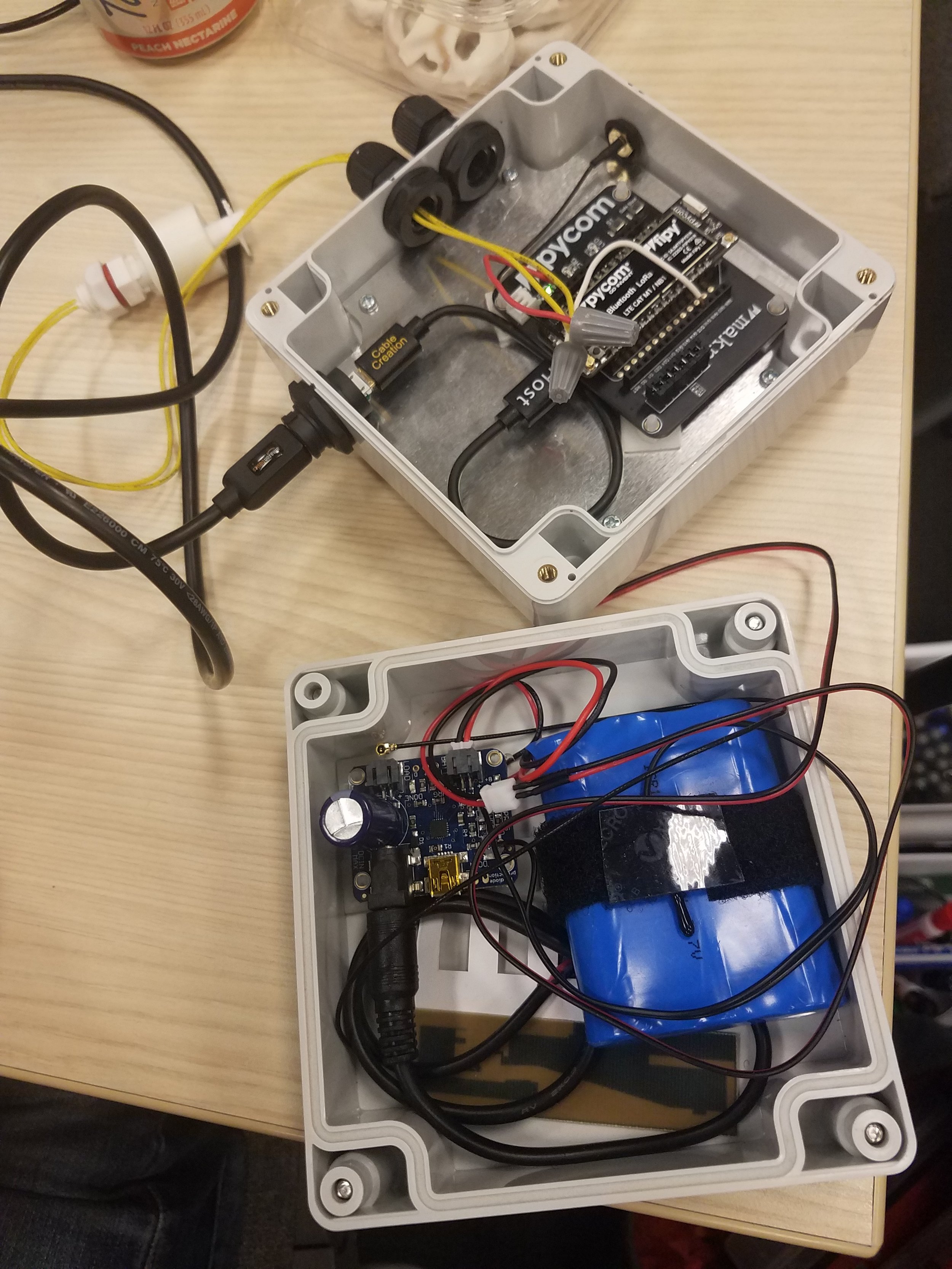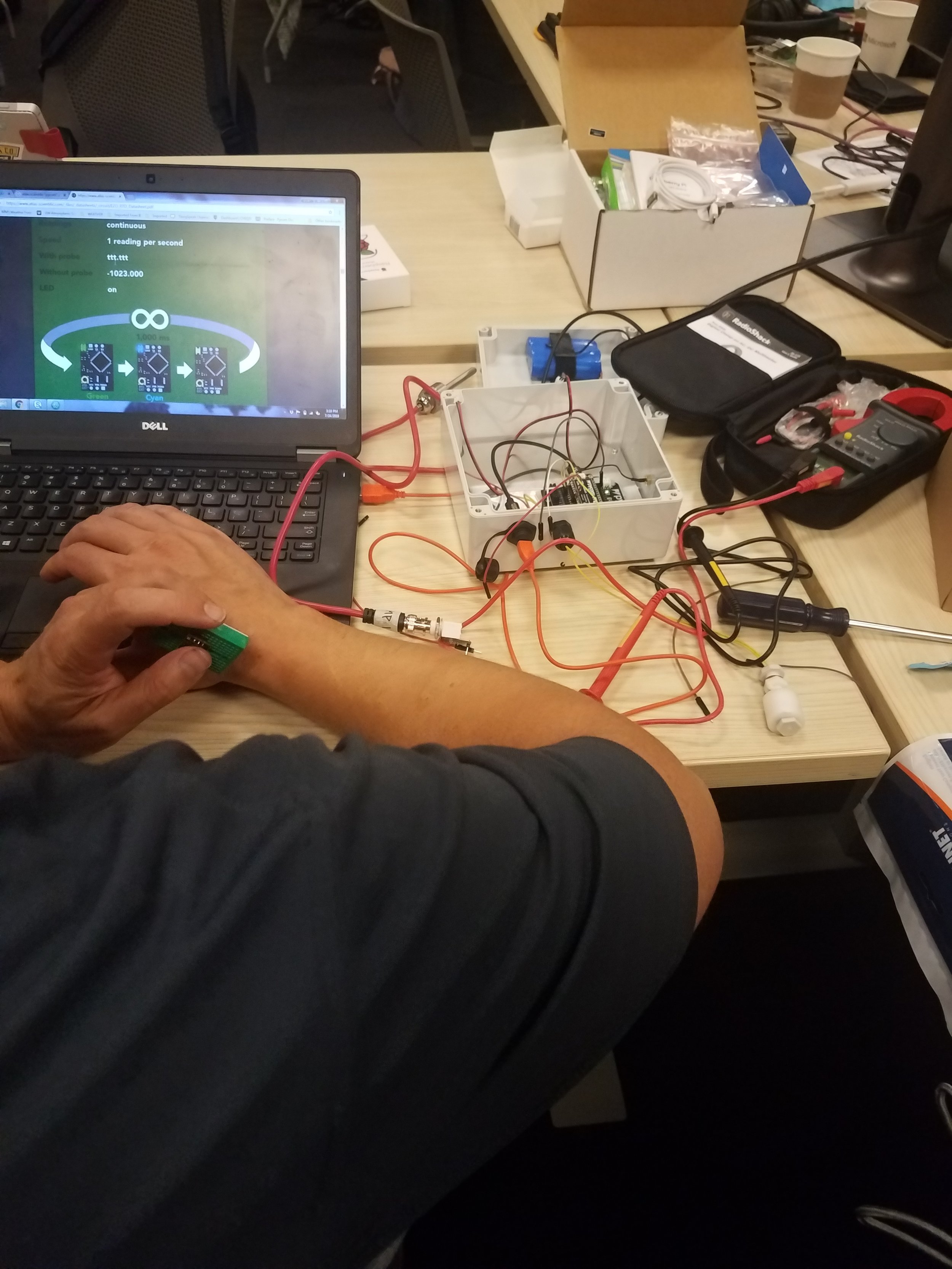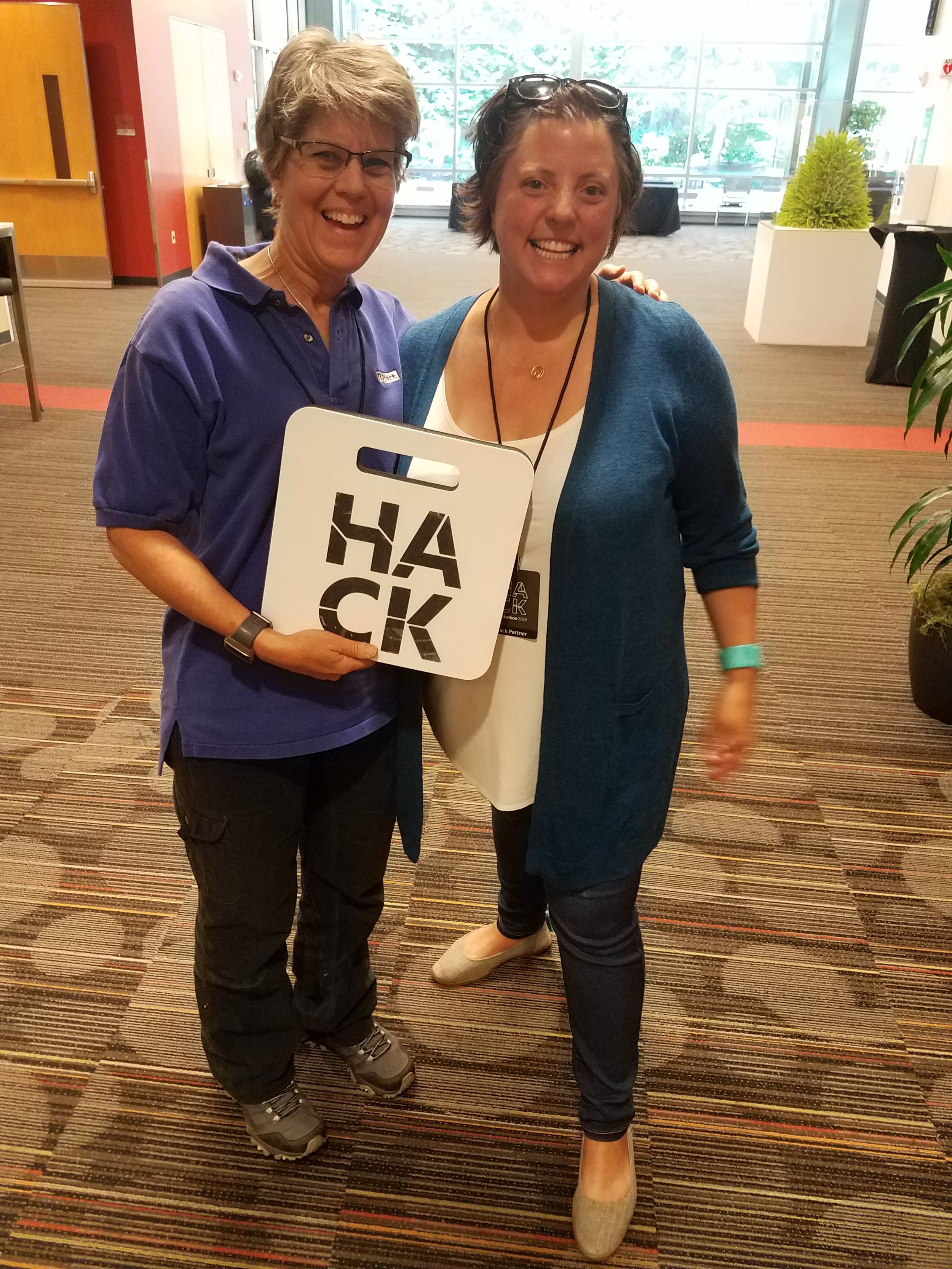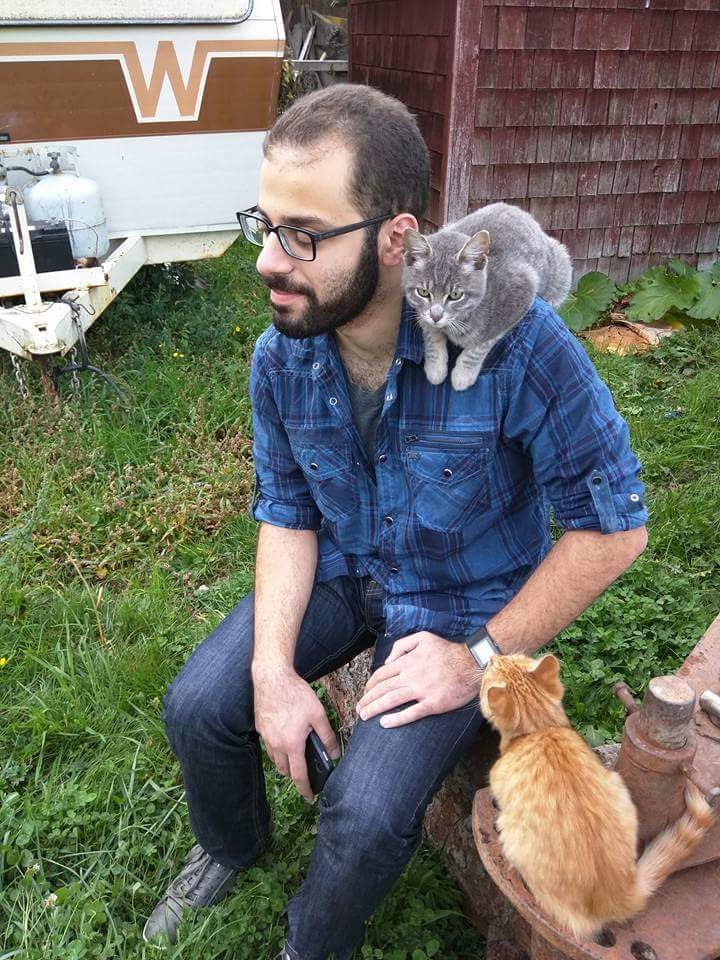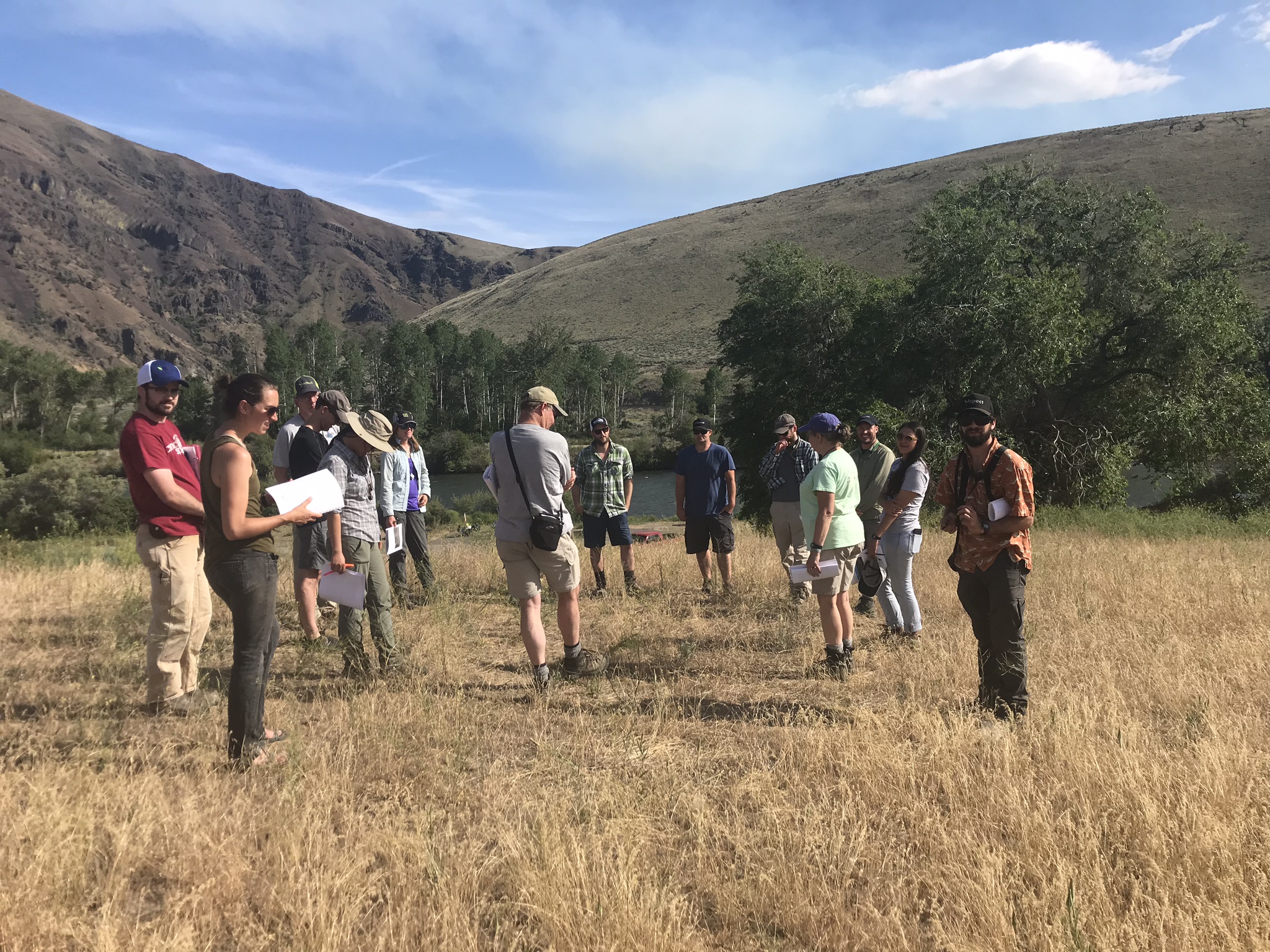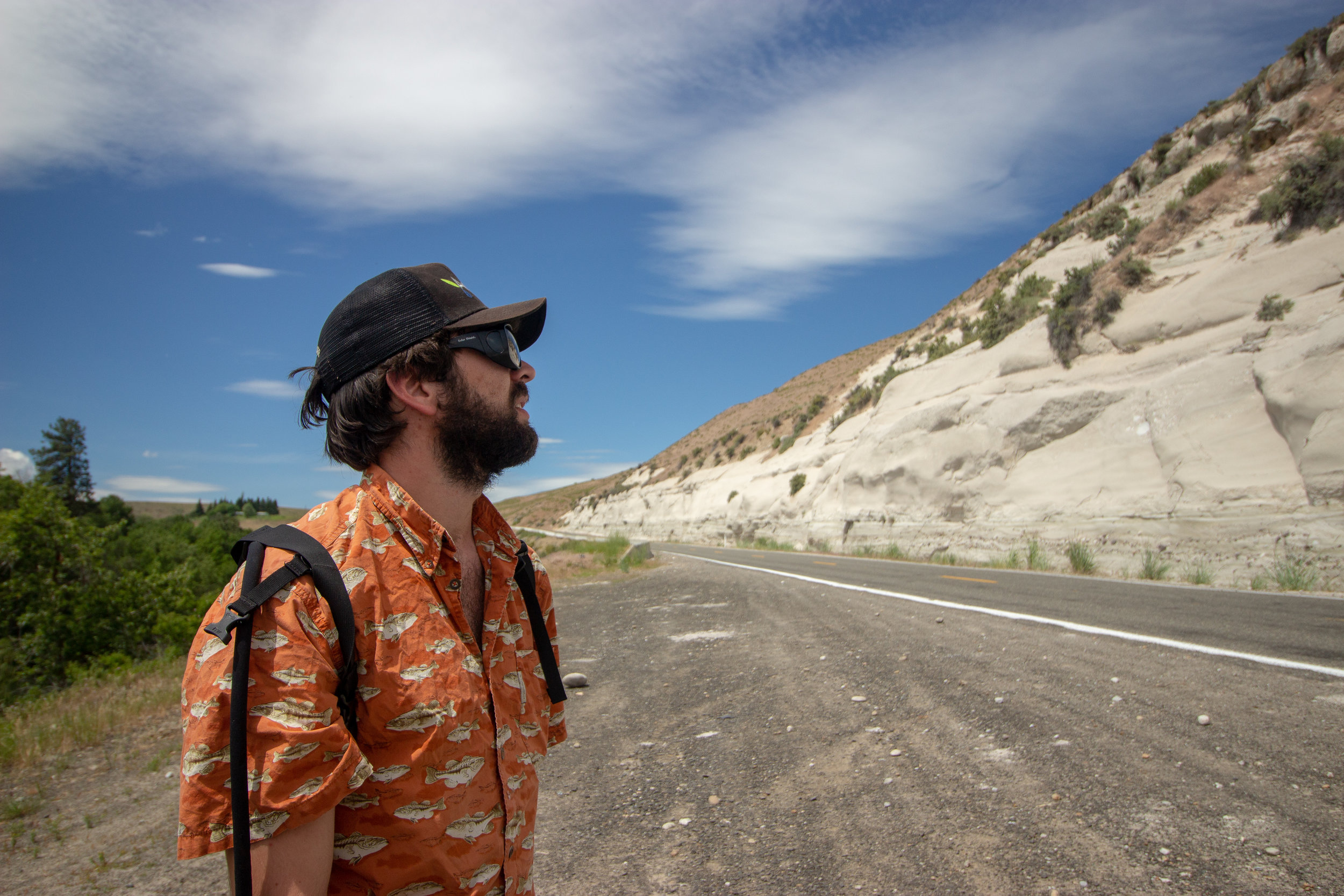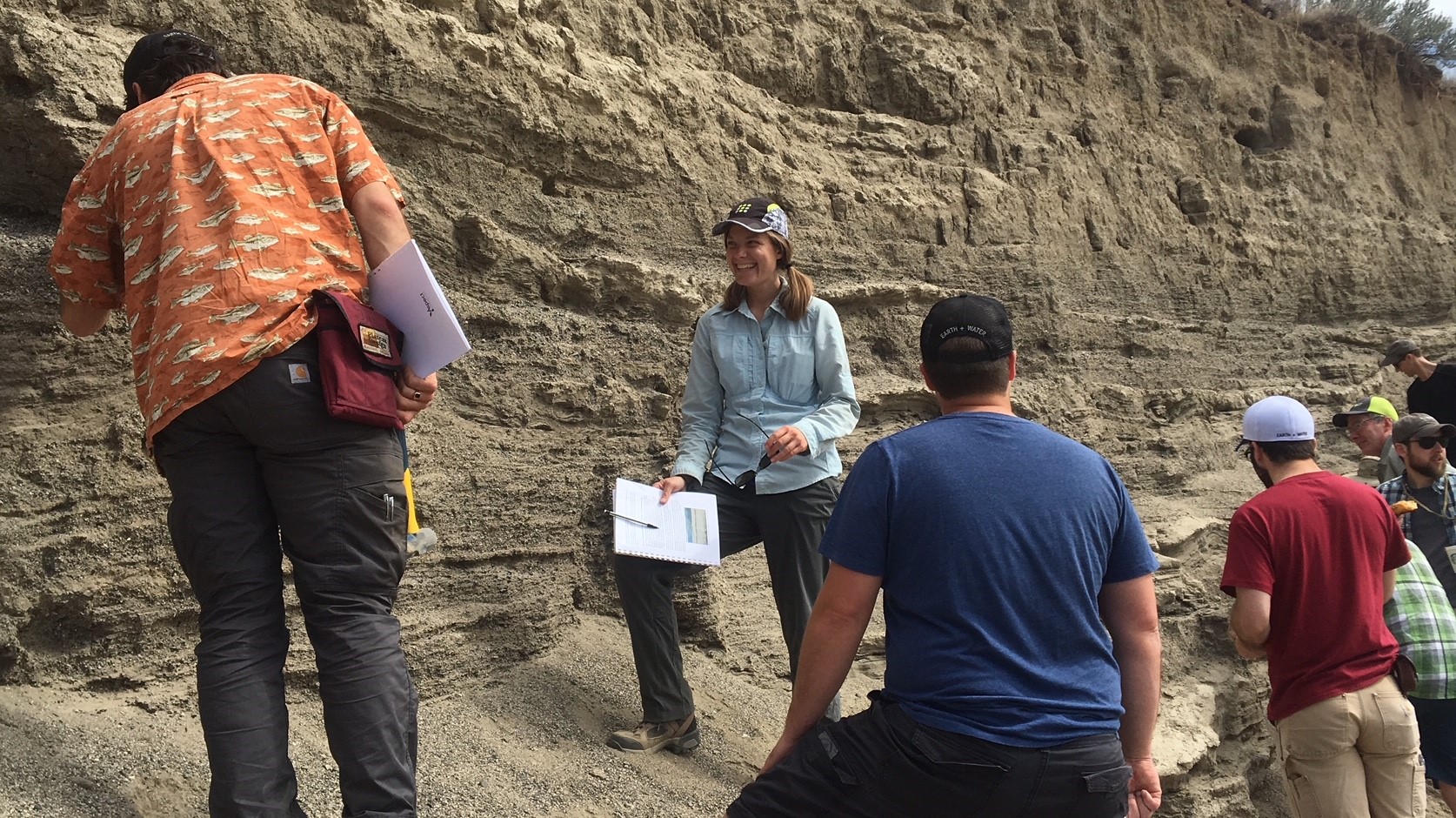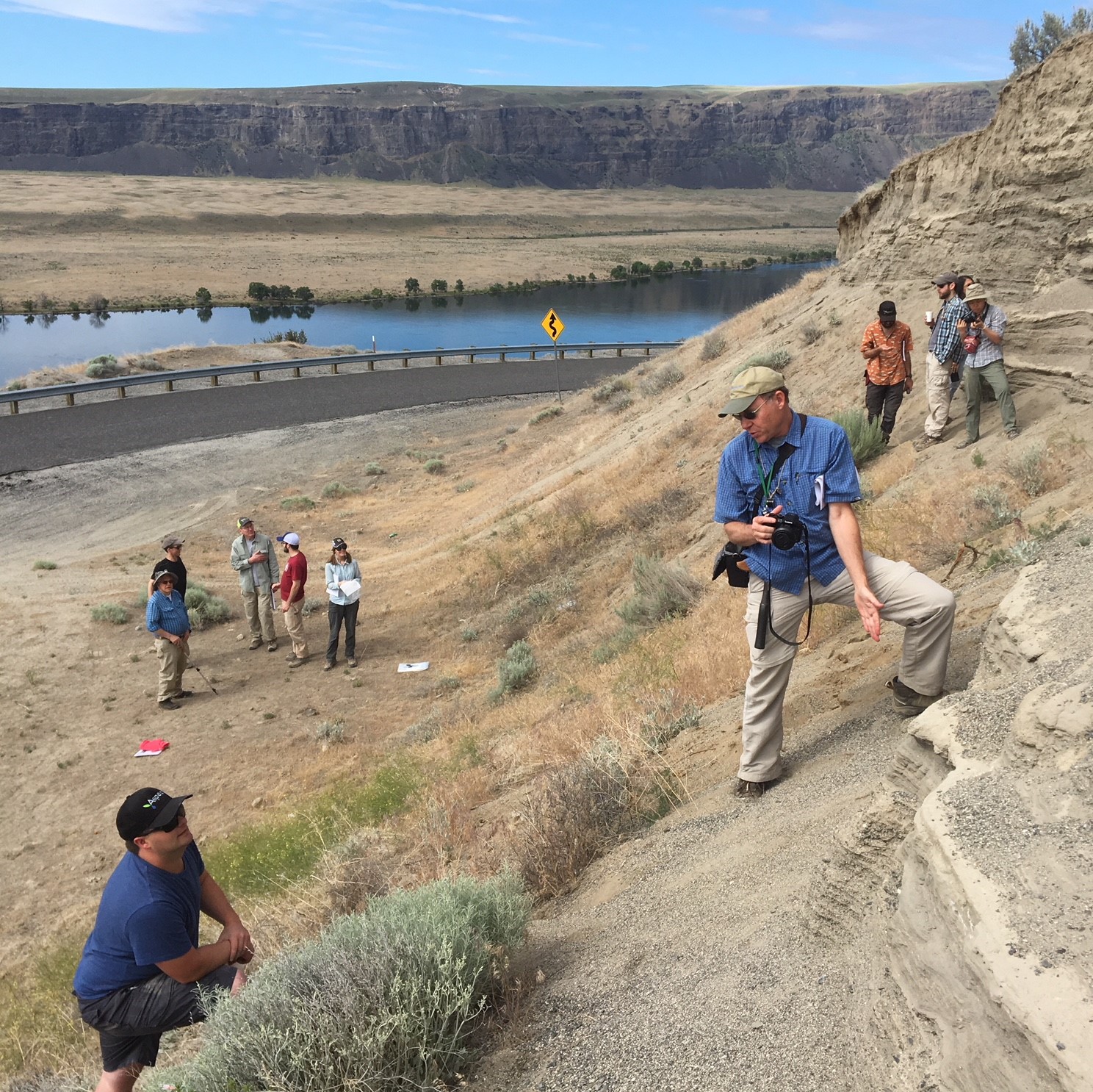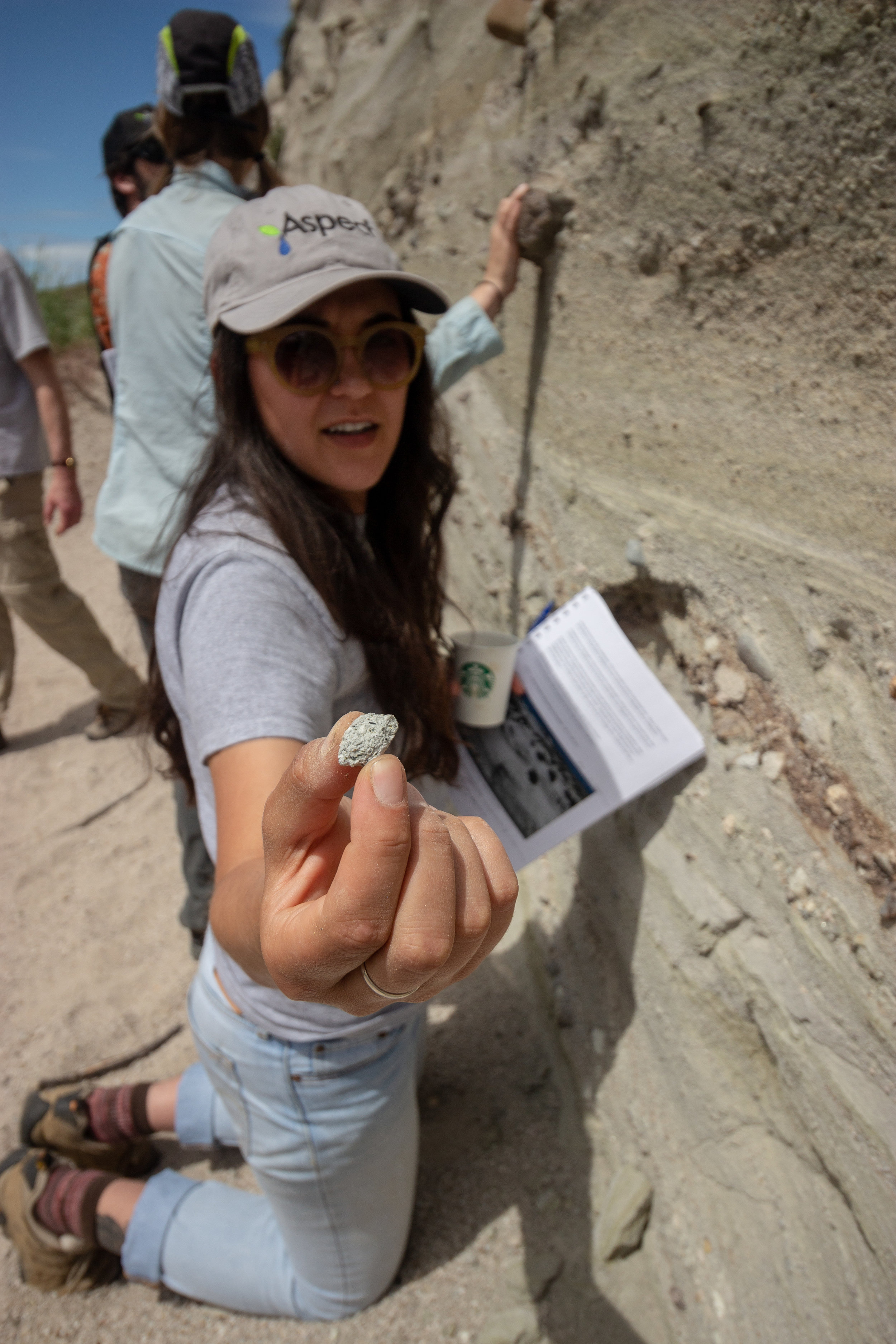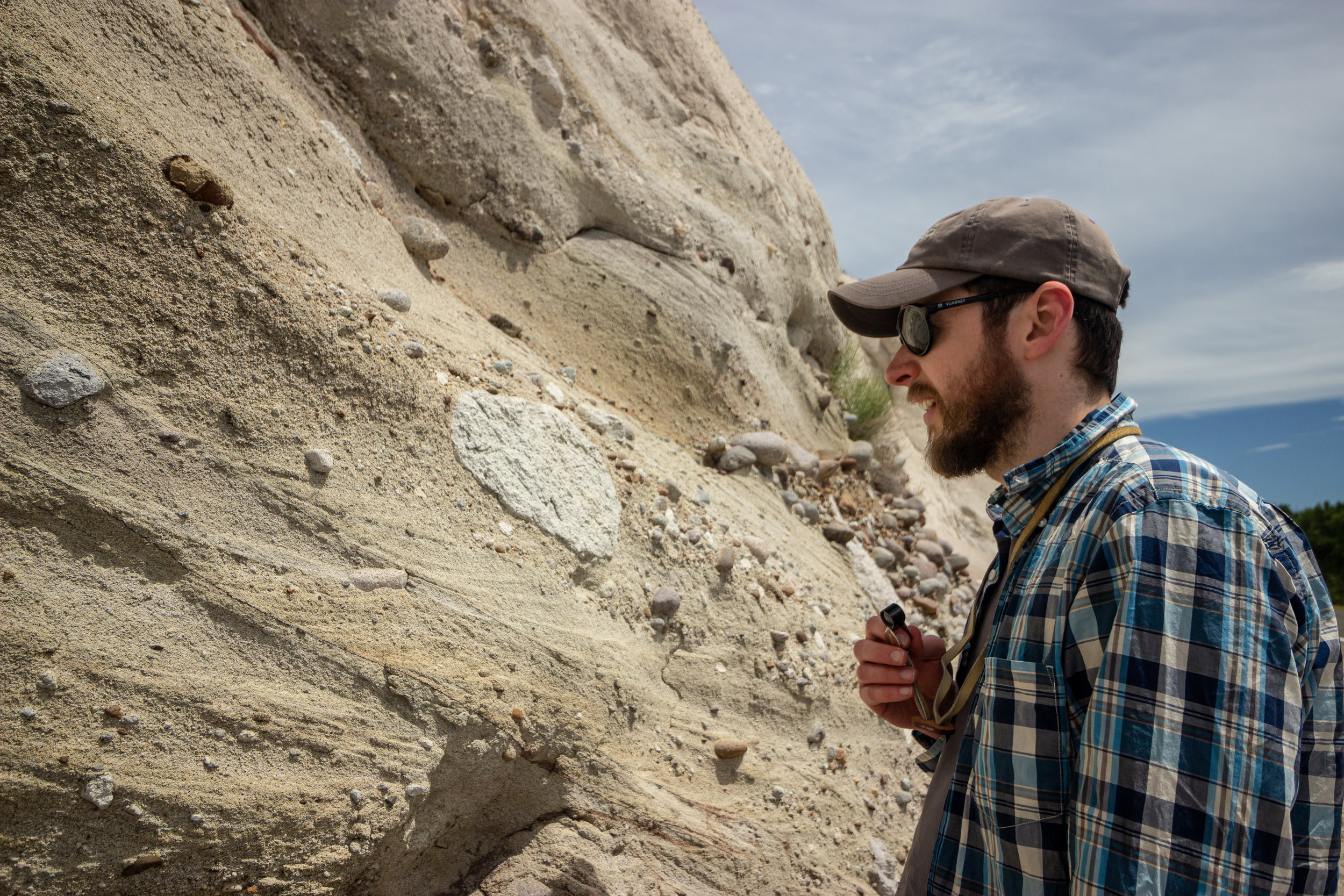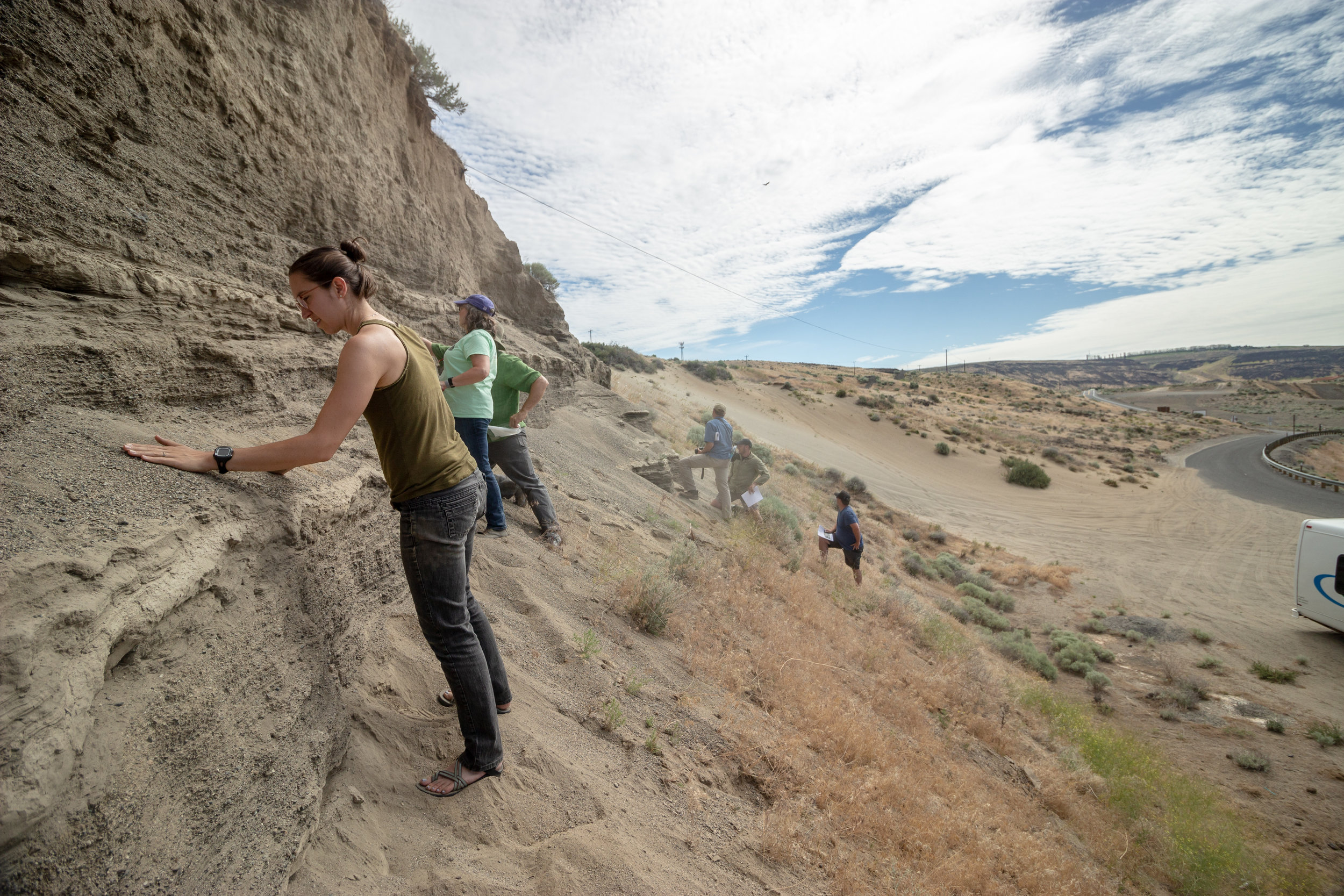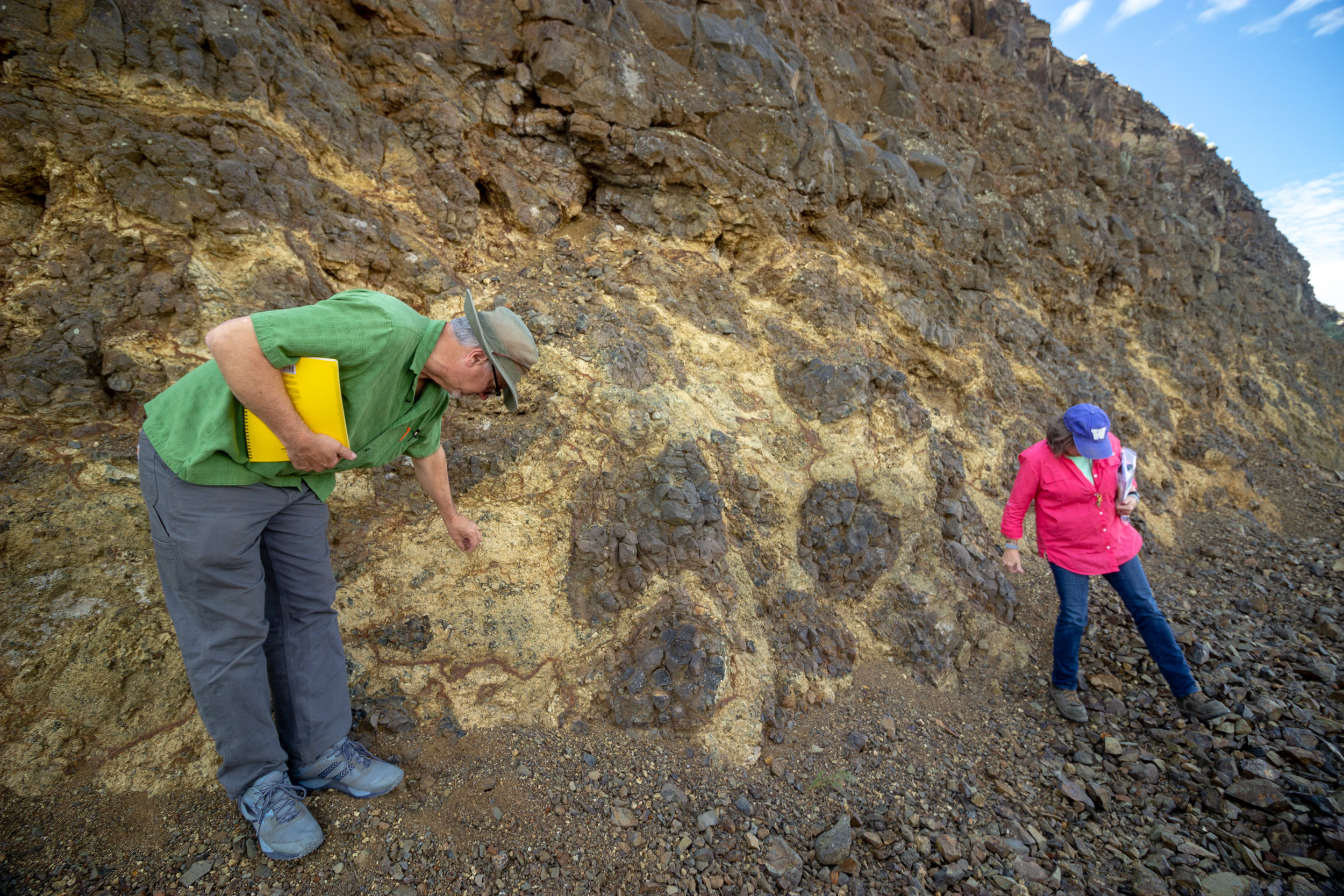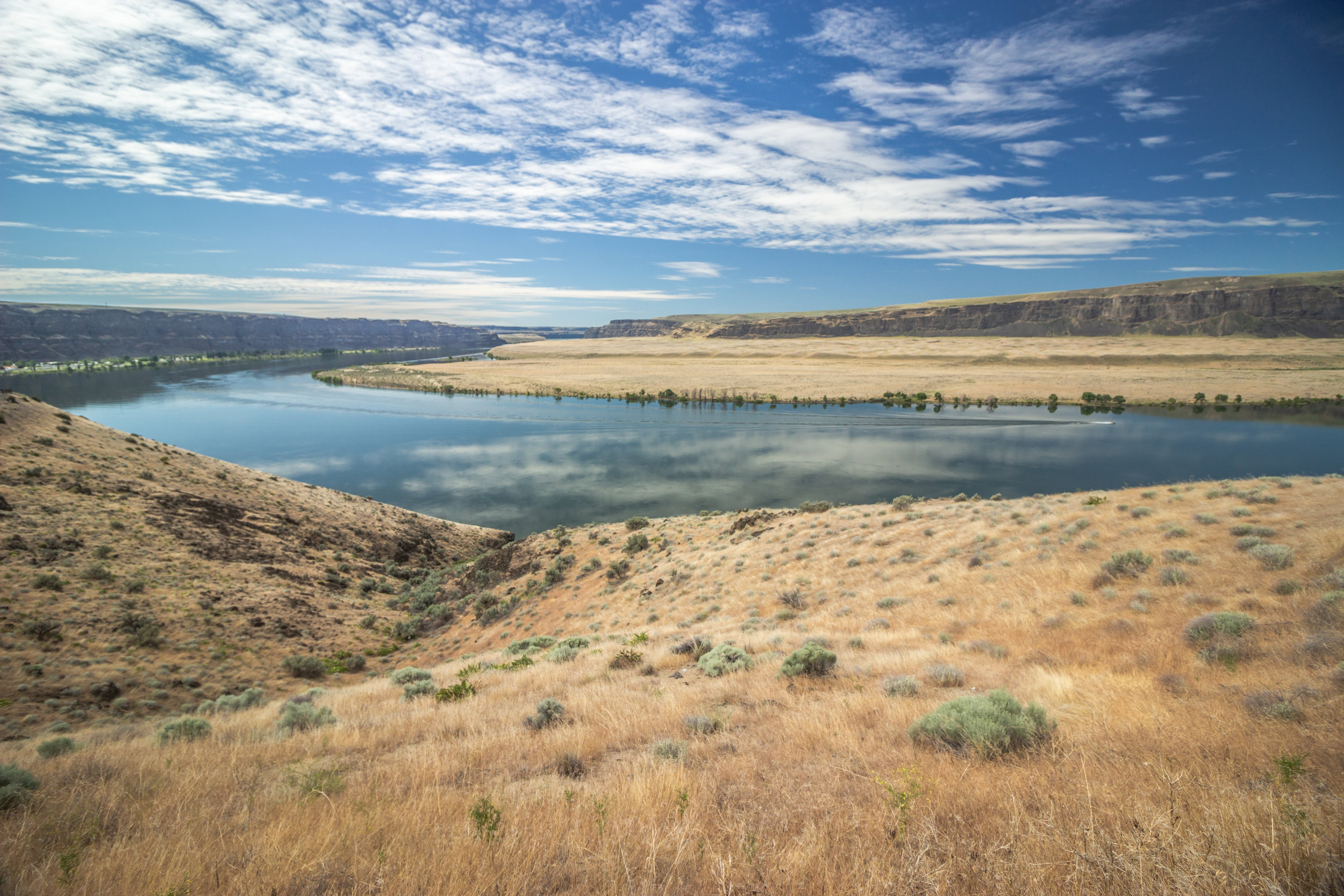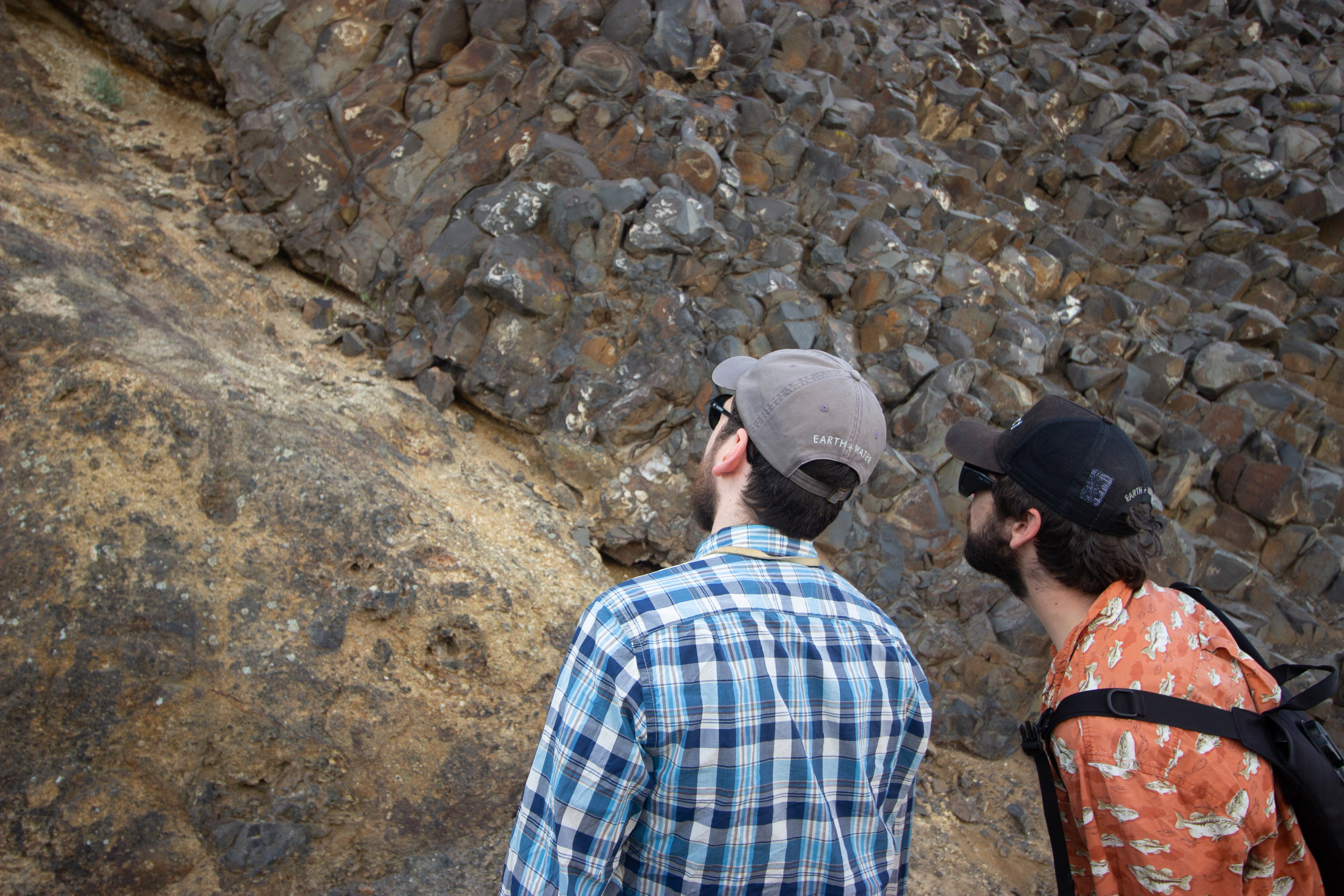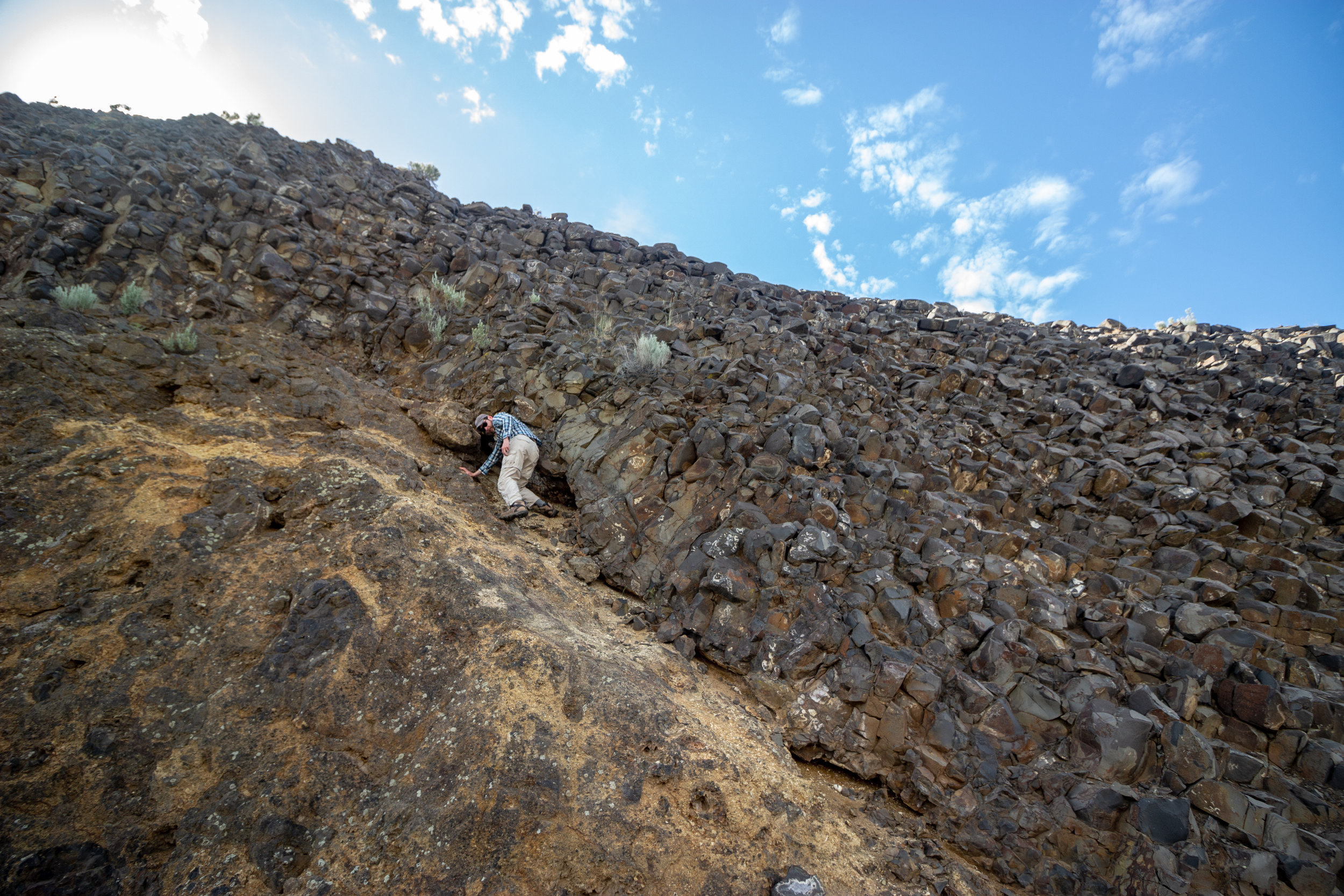Principal Geotechnical Engineer Henry Haselton, PE, PMP, and Principal Engineering Geologist Dave McCormack, LEG, LHG, will serve as co-chairs on the upcoming Landslides program for The Seminar Group on Thursday, October 25, 2018, at 9 am the Washington Athletic Club. This seminar covers the science behind slope movement and landslides in Washington and discusses the liability concerns for a wide audience of attorneys, claims professionals, and real estate experts. Henry and Dave’s presentation will focus on the science of landslides, including the different types, their causes, and methods for stabilization.
Aspect’s Tom Atkins Presenting at ECOSS’s 201X: Stormwater Management Workshop
On October 18th and 19th, ECOSS will be hosting 201X: Advanced Stormwater Management, a two-day workshop that looks at Industrial Stormwater General Permit (ISGP) requirements and compliance. This event is geared toward helping permittees, consultants, and engineers gain a deeper understanding of the permit by presenting several case studies and touring industrial sites with installed treatment technologies.
Aspect’s Tom Atkins will present the case study, “Alternative Pathways to Achieving Level 3 Corrective Action Requirements.” His presentation will include 3 case studies featuring roof downspout filters, pressurized filtration, adsorptive media, and discharge to publicly owned treatment works (POTW).
Learn more about the workshop HERE.
Aspect Joins The Nature Conservancy and Microsoft to Hack for Good
Aspect’s Curtis Nickerson and Bryan Berkompas recently participated in a Hackathon with The Nature Conservancy and Microsoft employees. The Hack for Good event focused on developing low-cost stormwater monitoring solutions that could identify pollutants and collect data in real time.
Read more about this event on the Nature Conservancy's website.
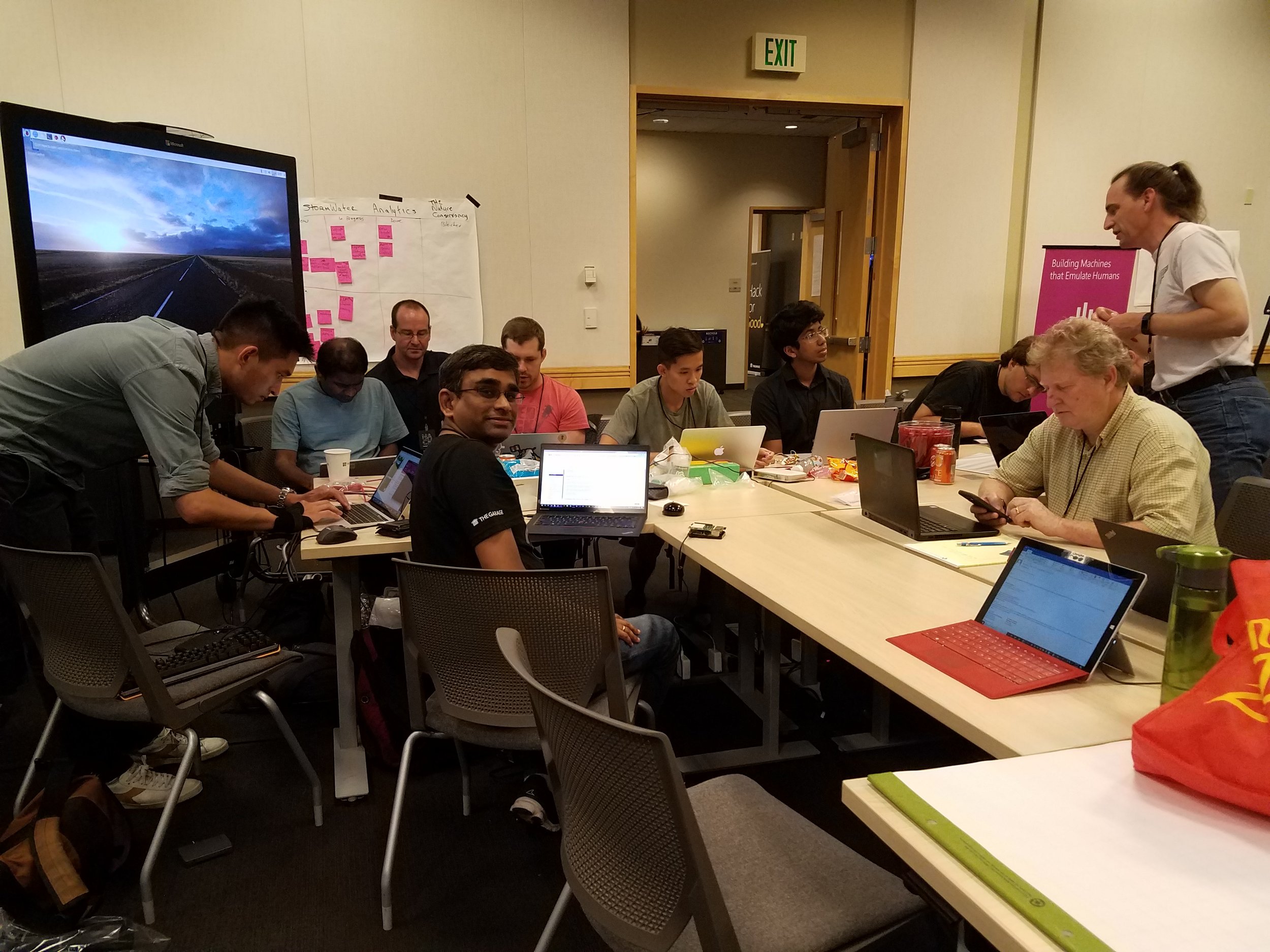
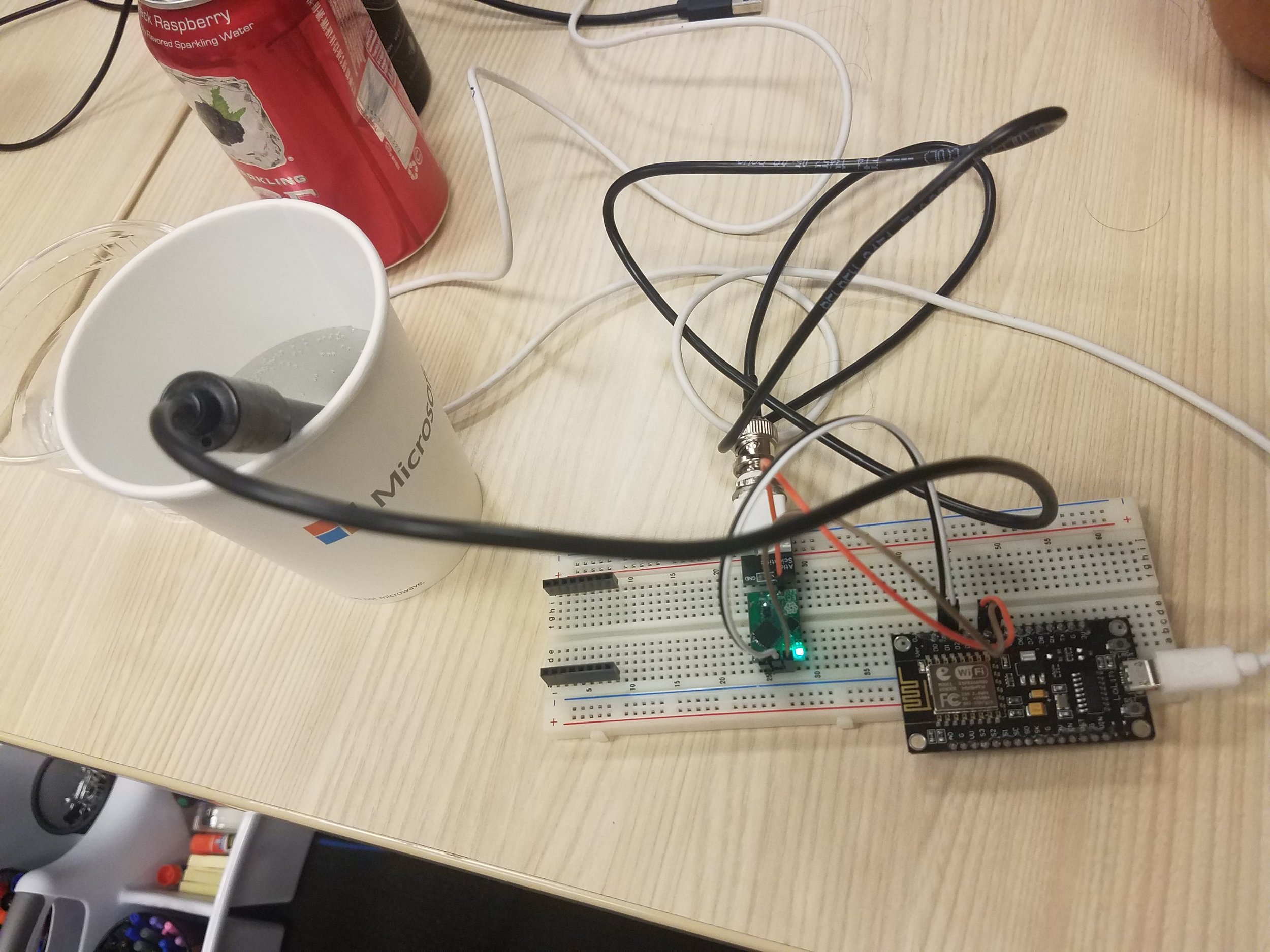
Henry Haselton named President-Elect of ASCE Seattle Section
The American Society of Civil Engineers (ASCE) – Seattle Section has a new President-Elect: Aspect’s Principal Engineer Henry Haselton.
Henry was voted in by the Seattle Section in June. He will serve as President-Elect under incoming President Eset Alemu this year, and then transition to President in October 2019. Henry has been a member of the ASCE since joining the student chapter 26 years ago and has served on several committees, most recently as Program Co-Chair, where he was tasked with brainstorming meeting topics and recruiting speakers for the section’s monthly dinner meetings.
As part of his transition to President-Elect, Henry attended the ASCE Region 8 Fall Assembly Meeting in Spokane, where he met leadership from all the western states and ASCE National President Kristina Swallow. Attendees were treated to an “engineers tour” of the Grand Coulee dam, where they learned about the inner workings of the dam from an experienced operator at the facility.
Henry also recently attended the ASCE President and Governors Forum (PGF) Event in Washington D.C., where he participated in trainings with ASCE leaders from around the world. The PGF training provides best practices to effectively lead a Section/Branch.
Henry is joined by other Aspect colleagues in the ASCE Seattle Section. Project Geotechnical Engineer Spencer Ambauen, EIT, is taking over Henry’s position as Program Co-Chair. Staff Engineer Mari Otto, EIT, is in her second term as Host and Hospitality Co-Chair, where she coordinates with the host venue and oversees meeting registration.
Aspect’s ASCE team kicked off the 2018-2019 season earlier in September with presentations on the upcoming demolition of the SR99 Viaduct and the Pier 62 Replacement, a project where Aspect is the geotechnical engineer-of-record. The ASCE Seattle Section Geotechnical Group’s first dinner meeting of the season was on Thursday, September 27 in Seattle. Professor Russell A. Green, PhD, a Professor of Civil Engineering at Virginia Tech, spoke on region-specific probabilistic liquefaction hazard analyses through a pilot study done in the Netherlands due to induced seismicity from natural gas production. Learn about upcoming events here.
Washington State Helps Turn Brownfields into Affordable Housing
See Washington State Department of Ecology’s new article covering the state’s new Healthy Housing Remediation Program for restoring contaminated land to promote affordable housing. Mt. Baker Housing’s 160-unit project in South Seattle — which Aspect is leading the cleanup for — was the inspiration for this program.
Learn more here: https://www.aspectconsulting.com/affordablehousing
Visualizing Stormwater Infiltration + Visualizing the Story
Aspect recently led a first-of-its-kind approach to help the City of SeaTac (City) understand water quality requirements at the land use planning stage. Aspect, along with Robin Kirschbaum, developed publicly-available webmaps that visualize stormwater infiltration potential at a parcel level across the City’s 10 square miles. These maps will help both City planners as well as developers screen development options with infiltration requirements and make this step of the land use planning process much more efficient.
Take a look at the interactive Story Map for this exciting new tool here: https://maps.aspectconsulting.com/lidmapjournal/index.html.
Read Emelie’s article in the Daily Journal of Commerce about this pioneering project.
Dave Cook to Discuss Reclaiming Brownfields for Affordable Housing at Housing Development Consortium Event
On September 18, join Aspect’s Dave Cook and Perkins Coie’s Mike Dunning as they share their experience developing innovative ways to reclaim brownfields for affordable housing. Dave and Mike will be joined by representatives from project partner agencies Mt. Baker Housing Association and the Washington State Department of Ecology in discussing Mt Baker Housing’s The Maddux – a two-building development with 144 apartments affordable to people earning up to 60 percent of the area median income. This project was made possible by implementing innovative cleanup solutions and identifying creative funding mechanisms. Learn More Here.
Meet Bill Grimm and Isabellah von Trapp
Staff Scientist Bill Grimm and Staff Scientist Isabellah von Trapp recently joined Aspect -- Bill in our Bainbridge office and Isabellah in our Seattle office. Here are five questions we asked to get to know them better.
Bill Grimm, Staff Scientist
- Where are you from? If you’re not from the Pacific Northwest, what brought you here?
I’m from the suburbs of Chicago originally. I came to Seattle a little over a year after graduating from college to do a master’s program in applied geosciences at the University of Washington. My master’s program was a great fit for me, because it combined two of my passions: earth science, and giving back to the communities in which I live. Seattle, and the Pacific Northwest in general, are incredibly interesting geologically, and the program presented a great opportunity to study real earth science-related issues happening in our own backyards.
- What inspired you to pursue geology? What made you curious about it?
I really fell in love with geology when I was on a family vacation to the Grand Canyon when I was about 10 years old. I had always loved maps and cross sections since I was a kid, and seeing the Grand Canyon in real life made me absolutely fascinated with the Earth and its natural processes.
- What do you like best about your area of expertise? What excites you and keeps you motivated?
My favorite part of geology is that it’s like a big puzzle. You start with what you know, and you try to fit the pieces together to make the problem make sense. Along the way, you discover new pieces of the puzzle that fit in to the whole, and the more you discover (generally), the clearer the bigger picture becomes.
- What do you like to do when you aren’t working?
I like to hang out with my wife, hike, play guitar, ski, and read. I’m also planning to start brewing my own beer sometime soon.
- Where in the world would you like to travel next?
I would love to do a trek from northern India through Nepal to the Mt. Everest base camp. I love knowing where I am in the world geologically and geographically and being able to picture myself on a map, and I think it would be awesome to walk from the flats in India across the plate boundary and all the way to the base of the highest mountain above sea level.
Isabellah von Trapp, Staff Scientist
Isabellah enjoying Death Valley geology.
- Where are you from? If you’re not from the Pacific Northwest, what brought you here?
I grew up in Salem, Oregon but I always knew I wanted to live in the Puget Sound-area. I attended college in Tacoma at PLU then set out for grad school in Missoula, Montana. But, after a couple years of cold-ish winters, I was ready to head back to my beloved, rainy PNW where I could easily access the mountains, ocean, and my family within a short arm’s reach.
- What inspired you to pursue water resources? What made you curious about it?
For most of my growing up years, I strongly believed I wanted to be a dentist…but after about 1 semester in college, I quickly realized that was not the life for me. After floundering around in some general education classes the following semester, I decided to take an introductory-level geoscience class and my mind was blown.
Soon thereafter, I declared myself as a geoscience major. I took a wide array of geology classes but out of all of them, I loved hydrogeology and geochemistry the most. After that, it only seemed natural to seek out a master’s thesis project where I could combine both of those things! Fortunately, I’ve been able to pursue a career that allows me to use those skills and develop new ones.
- What do you like best about your area of expertise? What excites you and keeps you motivated?
Everybody needs water. Working in water resources is not only interesting but it allows me to solve real world problems that affect a lot of people. Any job that allows you to simultaneously do science and help people is a cool one in my book.
- What do you like to do when you aren’t working?
Most of the time, I’m daydreaming about what I’m going to eat next. So, in my free time I enjoy perusing every item at Trader Joe’s, cooking, and baking. Aside from that – I also love to camp, hike, swim, knit, try out new beers, and travel just about anywhere!
- Where in the world would you like to travel next?
Iceland, Ireland, and Israel – apparently I have a thing for countries starting with the letter I.
Tyson Carlson and Dan Haller Leading Discussions on Water Law in Central Washington - August 16-17
Program Co-Chair Tyson Carlson will be leading the upcoming Water Law in Central Washington Seminar on August 16-17 in Ellensburg, WA. The conference includes a comprehensive introduction and update on water rights law, updates from regulators, and an inside look of some of the most recent trends and practices. Aspect’s Dan Haller will be joining the outstanding faculty and presenting on the Foster Pilot Project as a part of day two’s Senate Bill 6091 discussion. Learn more about the seminar here.
Meet Chad Hearn and Jason Yabandeh
Project Engineer Chad Hearn and Staff Data Scientist/Chemist Jason Yabandeh both recently joined Aspect's Seattle office. Here are five questions we asked to get to know them better.
Chad Hearn - Project Engineer
Chad and baby llama in Colca Canyon, Peru.
- Where are you from? If you’re not from the Pacific Northwest, what brought you here?
I grew up in Charleston, South Carolina. It was such a beautiful and fun place to grow up, and a great place to visit if you get a chance. After school, I lived in North Carolina before venturing this way. There’s so much that drew me here! If I had to pinpoint a few things it would be the climate, the Puget Sound, and the energy around outdoor activities like biking, skiing, and just getting out in the mountains. And I’m pretty sure we have the best summer weather in the country!
- What inspired you to pursue environmental consulting and remediation?
I think it was a pretty natural fit with my desire to have a hand in improving where we live and being motivated by helping others succeed. Remediation projects have tended to provide a lot of variety in the work side of the balance. Every site has its unique challenges and keeps you on your toes. There’s always a good learning experience to be had.
- What excites you and keeps you motivated?
It’s quite rewarding at the end of the day when you can say you’ve helped keep someone’s water supply clean, or maybe you just helped a client find a way to tackle a problem. I get really excited when I can help someone else look good. Environmental regulations, just like everything else around us, are constantly evolving. It’s exciting to have a hand in finding new ways to achieve outcomes that are better for everyone.
- What do you like to do when you aren’t working?
Shocker alert; when I’m not working I’m doing my best to explore the PNW and enjoy the outdoors. These days it’s mostly weekend camping trips with the pup, biking, skiing, reading, occasionally squeezing in a round of golf, and if I’m lucky catching a surf session along the frigid Pacific coast. And when I’m able to find some extended time off, travelling somewhere new is always a priority.
- Where in the world would you like to travel next? Where would your dream house be located?
Perhaps this is one of the reasons I like to travel to new places. How do you pick a place for a dream house when you’ve only caught a glimpse of the possibilities? Hopefully one day I find one. Until then…the criteria would have to be somewhere with a breeze, perhaps on a cliff overlooking an ocean (one that I can somewhat manageably get down to beach from), with mountains nearby, decent surf to keep me active and in the water, and maybe even have space for an organic farm and garden so I don’t have to sit in a car that will then be driving me to a grocery store on its own.
Jason Yabandeh - Staff Data Scientist/Chemist
At a Darrington, Washington farm with Bob (grey) and Howard (orange).
- Where are you from? If you’re not from the Pacific Northwest, what brought you here? I’ve lived in the Puget Sound area for my whole life, which is great because I love this little corner of the world.
- What inspired you to pursue data management? What made you curious about it?While my background is in chemistry, I was drawn to data management by an appreciation of its power. Everything we do in work and life involves data and having good control and understanding of that data is key in making accurate conclusions.
- What do you like best about your area of expertise? What excites you and keeps you motivated? Working in data allows me to get involved with many different interesting projects. It’s fun to learn about a site and then play with the data and see trends in contaminant concentrations -- which are hopefully on the decline! It’s also a great excuse to practice programming.
- What do you like to do when you aren’t working? I’ll take any chance I can get to go running, biking, hiking, or swimming with my two dogs. They are great training buddies for the Spartan races that I like to run every year. Besides the outdoorsy stuff, I really enjoy getting a few friends together for some games of the video or board variety. The current favourites are Mario Kart 8 Deluxe and Word Slam.
- If you could be with any musical artist living or dead, who would it be?
Definitely Queen. Not even necessarily to perform with them, as it would be an obvious understatement to say that my musical abilities pale in comparison, but just so I could bask in their glory.
Aspect’s Henry Haselton and Dave McCormack Join October Landslide Seminar
Aspect’s Principal Geotechnical Engineer Henry Haselton and Principal Engineering Geologist Dave McCormack will participate as faculty at The Seminar Group's Landslides program on October 25, 2018 at the Washington Athletic Club in Seattle. This seminar covers the science behind slope movement and landslides in Washington and discusses the liability concerns for a wide audience of attorneys, claims professionals, and real estate experts.
Aspect's Tom Atkins Presenting at ECOSS Stormwater Workshop
On October 18th and 19th in Renton, ECOSS will be hosting 201X: Advanced Stormwater Management. This two-day Industrial Stormwater Workshop, with an emphasis on case studies, provides ideas and solutions for stormwater treatment BMPs and sampling techniques to help those struggling to meet their benchmarks. The workshop includes visits to industrial sites with installed treatment technology. Participants can ask tough questions in a confidential setting.
Aspect is proud to sponsor this workshop, and Aspect’s Senior Associate Water Resources Engineer Tom Atkins will also be presenting a case study that highlights successful alternative pathways for industrial facilities to achieve ISGP compliance after trigging a Level 3 Corrective Action.
Learn more about the workshop HERE.
Designing Stormwater Runoff Solutions for Puget Sound Industry
In July's Storm Water Solutions magazine, Aspect's Tom Atkins writes about the challenge and successful problem-solving approach taken to help a Puget Sound industrial client meet stormwater runoff benchmarks to protect water quality in Seattle's Elliott Bay.
Read the story here: https://www.estormwater.com/meeting-benchmarks
Waypoint Park Opens Just In Time For Summer
Over the past five years, we’ve seen the Bellingham Waterfront District transform from a contaminated industrial site to a striking new waterfront park. We’re proud to have had a hand in cleaning up the site and providing geotechnical and environmental consultation throughout the design, permitting, and construction of the project. This included providing geotechnical design recommendations for siting of the 400,000-pound industrial acid ball tank turned public art piece titled “Waypoint”.
Congratulations to the City of Bellingham on your beautiful park!
Read more about the history of the park, the status of the waterway, and what’s next for the adjacent properties in this great Bellingham Herald article.
Meet Hannah McDonough and Taylor Rulien
Staff Geologist Hannah McDonough and GIS Analyst Taylor Rulien recently joined our Seattle office. Here are five questions we asked to get to know them better.
Hannah McDonough - Staff Geologist
Hannah sailing in the Puget Sound
- Where are you from? If you’re not from the Pacific Northwest, what brought you here?
I grew up in a log cabin on a dirt road in Vermont. As a kid, I cross-country skied, hiked, and tapped maple trees right outside my front door. I gained an appreciation for the natural world, which led me to study geology at the University of Rochester in New York. During field camp in Wyoming, I realized that I needed to be in the west to get a better sense of active geology. I went on to study at Utah State University and eventually found work in environmental consulting. I’ve stayed for the sushi, mountains, and water.
- What inspired you to pursue geology?
On a field trip in high school, we visited a local mountain and observed glacial striations in the large granitic bedrock. I was so taken by the power of earth’s movements around me, that I had to figure out how this happened and what other wonders are out there to explore. I felt right at home in the geology department since we got to dig up fossils and hike out to coal mines in Pennsylvania.
- What do you like best about your area of expertise?
I am drawn to the results of environmental consulting. It is very rewarding to work on projects across the state and a few years later point out, “that’s a place where I made a small improvement in this corner of the world.” I also enjoy the travel. I’ve seen more of Washington State during site visits than some locals see in a lifetime. It’s a great way to learn more about this dynamic state.
- What do you like to do when you aren’t working?
I took a year off from consulting and delved into the sailing world. I enjoy harnessing the power of the wind to explore new places and familiar places from a new perspective. I am also an amateur violinist, and love to jam with friends and family.
- If you could be onstage with any musical artist living or dead, who would it be?
Andrew Bird is my musical hero. It’d be a dream to be on stage fiddling and whistling with him.
Taylor Rulien - GIS Analyst
Taylor lounging on the north ridge of Mt. Stuart in Washington's central Cascades
- Where are you from? If you’re not from the Pacific Northwest, what brought you here?
I was born and raised in Alaska, this gave me a love for the outdoors but also a need to explore different states due to the isolation. I’ve since lived across the West from Oregon, California, Colorado, and now Washington. Washington has hit a good balance for me between the excitement of having a large city to the vast mountainous wilderness – I plan on calling this place home for a long time.
- What inspired you to pursue GIS?
I’ve always been fascinated by maps and GIS is a great way to keep that alive. With the large amount of spatial data available through our smartphones and other devices, there is a growing need and ability for exciting spatial analysis.
- What do you like best about your area of expertise? What excites you and keeps you motivated?
GIS is such a broad discipline, this allows me to continue to learn different skillsets from automation through programming, cartography, application development, and more complicated analysis.
- What do you like to do when you aren’t working?
I like doing anything in the outdoors. You’ll find me either climbing rocks, ice, or trail running in the mountains and enjoying a post IPA and burger at the closest brewery. Let me know if you are ever interested in an outdoor activity!
- Where in the world would you like to travel next?
There are dozens of places that I would love to travel to in the world but going back to Spain might be the most realistic and exciting for me. There are numerous world class climbing destinations!
Washington's Healthy Housing Program Helps Fund Cleanup for Affordable Housing
Today, the Seattle Daily Journal of Commerce (DJC) published a great overview of the new Washington State Healthy Housing Program and the inspiration for the program - Mt. Baker Housing's $55 million Maddux project. Check it out.
Does your firm want help turning brownfields into affordable units?
Ecology wants to offer grants to get brownfields cleaned up and reused, and is seeking applications from developers until Saturday.
By BENJAMIN MINNICK
Journal Construction Editor
There are thousands of blighted properties across the state that could be redeveloped to create more affordable housing, but contamination on these sites has mostly kept developers at bay.
Now the state and its consultants are testing a way to get more of these sites developed. The Healthy Housing Remediation Program provides grants to help affordable housing developers build on brownfields.
The departments of Ecology and Commerce created the program. To gauge interest, they are seeking applications from developers until Saturday. The list of firms that respond will be used to develop Ecology's 2019–21 cleanup budget plan and to demonstrate funding needs for the Legislature to consider during the 2019 session.
Dave Cook of Aspect Consulting, one of the consulting firms, said affordable housing developers face high property costs, water rights issues and Growth Management Act restraints. He said this program will help fund remedial investigation studies and site cleanup to make blighted properties more attractive to developers.
The program was inspired by Mt. Baker Housing's $55 million Maddux project, which is slated for a site on South McClellan Street, east of Martin Luther King Jr. Way South and near the Mount Baker light rail station.
Maddux will have two buildings with 144 apartments that are affordable to people earning up to 60 percent of the area median income. Nearly half of the units will be “family-size,” with two- and three-bedroom layouts.
Mt. Baker Housing will use $6.2 million in state funds to clean up contamination from a gas station and dry cleaner. The nonprofit signed an agreement last year with Ecology that lays out the cleanup plan, and Ecology provided $400,000 for initial studies.
“We've been in the Mount Baker neighborhood a long time and these five properties always intrigued us — but we knew conventional options to develop the site were limited,” said Conor Hansen, director of real estate at Mt. Baker Housing, in a news release. “Once we learned about the opportunity to work with the Department of Ecology and play a part in creating a new innovative model, we believed this site would be the perfect candidate to clean up, develop and activate a prominent intersection that will serve as a catalyst for the neighborhood and provide much-needed affordable housing near light rail.”
In early 2017, the city designated the five properties as a Redevelopment Opportunity Zone, which allows state funds to flow directly to Mt. Baker Housing for remediation.
The parcels total about a half-acre.
Mt. Baker Housing aims to select a general contractor shortly, and break ground in late 2019 and open in early 2021. Other team members are architect Mithun, development consultant Beacon Development Group and acquisition lender Impact Capital.
Cook said it will be two months before all the data is available about the site contamination, but it's “very contaminated.”
Aspect and law firm Perkins Coie led the environmental team for Mt. Baker Housing, and worked with Ecology on the pilot program.
Cook said Aspect and Perkins Coie can help interested developers with the pilot program's application process.
Central-Washington Geology: Field Trip!
Rocks have histories and their histories tell us stories.
This was the underlying theme of Aspect’s recent seminar on central Washington geology, led by esteemed experts Dr. Kathy Troost, LG, of Troost Geosciences and the University of Washington and Dr. Eric Cheney, Geology Professor Emeritus at UW. While topography alone makes clear the relevance of geology to the eastern Washington landscape, less sure is how the regional setting impacts the realm of projects—those distinct points on and below the ground where Aspect’s earth science and engineering work enters in.
Over two days in June, staff from across Aspect’s offices came together to learn about big-picture geology and earth processes related to 66 million years of local history, and then travel to the outcrops to see the deposits firsthand. Woven throughout were the contributions of each person’s unique experiences with geology and relevant insights from nearby project sites. Together, the balance provided each of us the tools to make sense of an otherwise complex landscape; a way to break it down into manageable pieces, put it back together, and learn what it has to tell.
Water Quality Sampling in the Wenatchee River
Learn about Washington Water Law
Aspect’s water law expert, Dan Haller, will be presenting on Water Banking for Agricultural Water Supplies at the 27th Annual Water Law in Washington conference (June 14-15). This year’s conference focuses on major legislative changes, new case law, and important practical information for water rights and resource management in the State of Washington.
Washington State’s First Affordable Housing Fund for Contaminated Sites: Applications Due June 30th
The Washington State Departments of Ecology and Commerce have created an innovative new program that will provide grants to affordable housing developers seeking to redevelop contaminated properties and increase the state’s housing stock.
The Healthy Housing Remediation Program will provide grant funds to nonprofit and private housing organizations to evaluate, investigate, and clean up contaminated properties to support the development of affordable housing. It was created by the Washington State Legislature during the 2018 session and will be funded in the 2019 session.
The program builds upon the successful partnership between Ecology and the Mt. Baker Housing Association on the Gateway Project in Seattle. Mt. Baker Housing’s Gateway Project will redevelop several contaminated properties for affordable housing near transit hubs in Seattle’s Rainier Valley. Aspect and law firm Perkins Coie — with lead counsel Mike Dunning — serve as Mt. Baker Housing’s environmental team on the Gateway Project. Perkins Coie and Aspect have worked directly with Ecology and Mt. Baker Housing to build this unique concept.
Ecology and Commerce started soliciting applications for the program on June 1 and the application period closes June 30. Perkins Coie and Aspect can help interested organizations complete and send in their applications. This needs to happen as soon as possible to meet the June 30 deadline.
If you have any questions about the Healthy Housing Remediation Program or about redeveloping contaminated properties for housing, please contact Dave Cook at 206.838.5837 and at dcook@aspectconsulting.com or Mike Dunning at 206.359.3464 and at mdunning@perkinscoie.com.
Before and after conceptual image of Mt. Baker Gateway Project in South Seattle – one of the affordable housing cleanup sites that the Healthy Housing program is inspired from.




